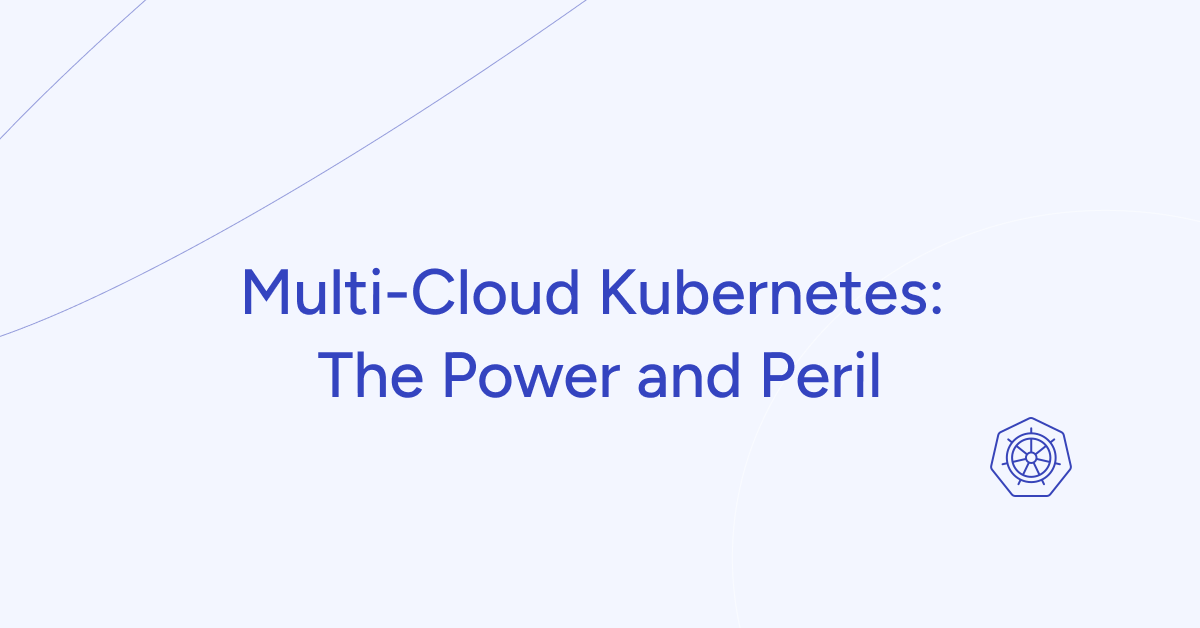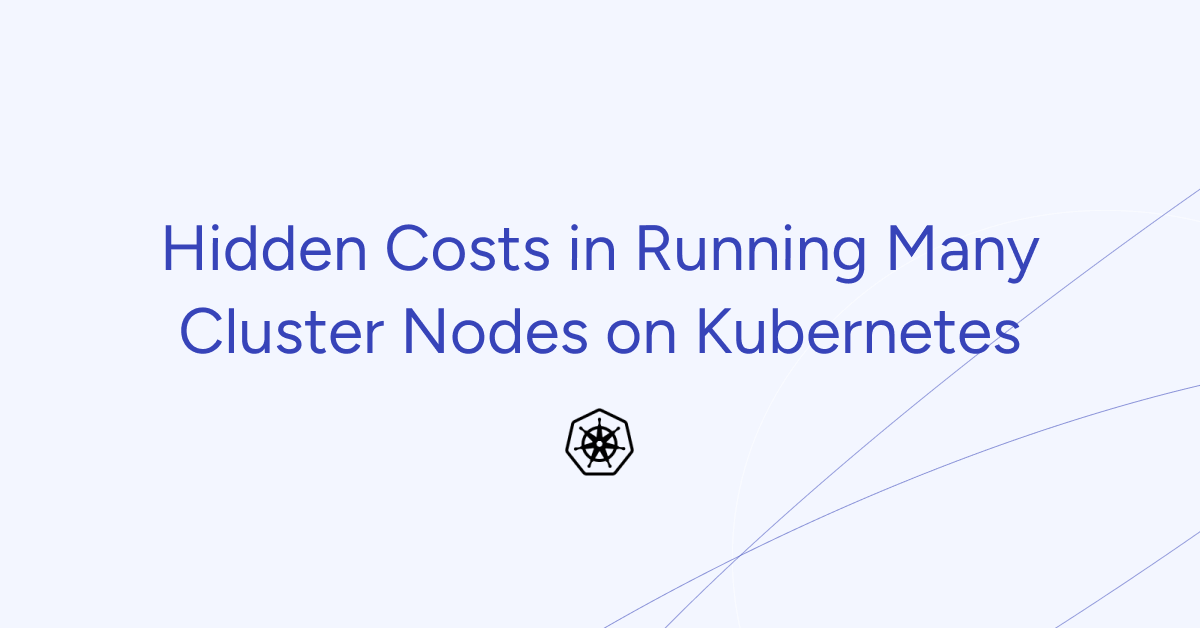
[lwptoc]
Before delving into the importance of hiring Kubernetes experts, it's crucial to grasp the fundamentals of Kubernetes. At its core, Kubernetes provides a framework for automating the deployment, scaling, and operation of application containers. It ensures that your applications run efficiently and consistently across various environments.
As businesses embrace microservices and containerization, Kubernetes has become a cornerstone of modern application development. Its role in ensuring high availability, fault tolerance, and scalability cannot be overstated. Kubernetes allows organizations to keep pace with the ever-changing demands of the digital landscape.
Why Hire Kubernetes Experts?
Hiring Kubernetes experts is an investment that can significantly impact your organization's efficiency and competitiveness. These experts bring invaluable knowledge and skills to the table, including:
Container Orchestration. They excel in managing and orchestrating containers efficiently.
Troubleshooting. Kubernetes experts are adept at identifying and resolving issues quickly.
Optimization. They can optimize your Kubernetes clusters for cost-effectiveness.
Security. Experts ensure your containers are secure and comply with best practices.
Skills and Qualifications of Kubernetes Experts
To make an informed hiring decision, it's crucial to understand the key skills and qualifications that Kubernetes experts should possess. Look for candidates with:
Certifications: Kubernetes Certified Administrator (CKA) and Kubernetes Certified Developer (CKD)
Certifications play a pivotal role in establishing the credibility and expertise of Kubernetes professionals. Two of the most highly regarded certifications in the Kubernetes ecosystem are the Kubernetes Certified Administrator (CKA) and Kubernetes Certified Developer (CKD). These certifications are offered by the Cloud Native Computing Foundation (CNCF) and are recognized globally for their rigor and relevance.
Kubernetes Certified Administrator (CKA):
The CKA certification is tailored for individuals responsible for managing, operating, and maintaining Kubernetes clusters. It validates the administrator's ability to perform essential tasks such as:
Configuring Kubernetes networking.
Managing cluster nodes and ensuring their proper functioning.
Deploying applications using Kubernetes resources.
Securing the Kubernetes cluster.
The CKA exam is hands-on, requiring candidates to complete practical tasks within a real Kubernetes environment. This practical approach ensures that certified administrators have the practical skills necessary to excel in Kubernetes management.
Kubernetes Certified Developer (CKD):
The CKD certification is designed for developers who work with Kubernetes to deploy, manage, and troubleshoot containerized applications. It verifies the developer's proficiency in tasks such as:
Containerizing applications.
Debugging and troubleshooting applications running on Kubernetes.
Managing application configurations using ConfigMaps and Secrets.
Working with Kubernetes APIs and resources.
Like the CKA, the CKD certification exam is hands-on, emphasizing practical skills development. Certified developers are well-equipped to create and maintain applications in Kubernetes environments.
These certifications are valuable not only for individual career growth but also for organizations seeking to build a strong Kubernetes team. Hiring professionals with CKA and CKD certifications ensures that your team possesses the skills and knowledge needed to navigate the complexities of Kubernetes effectively. Additionally, these certifications are indicative of a commitment to excellence in container orchestration, which can significantly contribute to the success of Kubernetes initiatives within your organization.
Experience
Seek professionals with hands-on experience in Kubernetes deployments. When hiring Kubernetes experts, one of the critical factors to consider is their practical, hands-on experience in Kubernetes deployments. This aspect of their expertise carries significant weight for several reasons:
Real-world Application
Kubernetes is a powerful tool, but its effective utilization often requires practical experience. Professionals with hands-on experience have encountered and resolved real-world challenges, making them well-prepared to handle complex deployment scenarios.
Troubleshooting Skills
Experience in Kubernetes deployments equips experts with strong troubleshooting skills. They are adept at identifying and resolving issues quickly, minimizing downtime and ensuring the smooth operation of containerized applications.
Optimization
Hands-on experience also includes optimizing Kubernetes clusters for efficiency and cost-effectiveness. These experts can fine-tune configurations, resource allocation, and scaling strategies to ensure your infrastructure performs optimally.
Best Practices
Professionals with hands-on experience are well-versed in Kubernetes best practices. They understand the nuances of configuring, securing, and managing Kubernetes resources in alignment with industry standards.
Adaptability
Kubernetes is a rapidly evolving technology, and experienced professionals are more adaptable to changes and updates in the Kubernetes ecosystem. They can stay up-to-date with the latest features and incorporate them into your deployment strategy.
Project-specific Knowledge
Depending on your organization's specific needs and projects, experienced Kubernetes experts may have relevant project-specific knowledge that can accelerate your deployment and ensure its success.
To identify candidates with hands-on Kubernetes experience, consider conducting technical interviews that involve practical scenarios and problem-solving exercises. Ask candidates about their past projects, the complexity of deployments they've managed, and any challenges they've overcome. This information will give you valuable insights into their practical expertise and their ability to contribute effectively to your Kubernetes initiatives. Ultimately, professionals with hands-on experience are more likely to hit the ground running and make a meaningful impact on your Kubernetes projects from day one.
? Ready to elevate your container orchestration game? Hire Kubernetes Experts today and experience seamless deployment and management. Don't miss out on unlocking the power of Kubernetes!
Problem-Solving Abilities: The Key to Effective Kubernetes Management
In the dynamic world of Kubernetes, where containerized applications operate in complex and ever-evolving environments, the ability to troubleshoot complex issues is a hallmark of a skilled Kubernetes expert. Here's why problem-solving abilities are paramount for professionals in this field:
Kubernetes deployments often consist of numerous interconnected components, including pods, services, networking configurations, and storage volumes. When issues arise, they can be multifaceted, requiring experts to navigate the intricacies of these environments.
Kubernetes is used to deploy a wide variety of workloads, from microservices to data-intensive applications. Each workload comes with its unique challenges and potential points of failure. Kubernetes experts must be adept at diagnosing issues specific to different types of workloads.
Scripting and Automation Skills: Proficiency in scripting languages and automation tools is a plus
In the realm of Kubernetes, proficiency in scripting languages and automation tools is a highly desirable trait for experts.
Common scripting languages and automation tools used in Kubernetes environments include Bash, Python, PowerShell, Ansible, and Terraform. Kubernetes experts who are proficient in these languages and tools can create scripts and automation workflows to manage various aspects of Kubernetes, from provisioning clusters to deploying applications and managing configurations.
Kubernetes environments often involve repetitive tasks, such as creating, scaling, and managing containers. Scripting allows experts to automate these tasks, enhancing efficiency and ensuring consistency in configurations and deployments.
The concept of Infrastructure as Code is fundamental in modern DevOps practices. Kubernetes experts who can write scripts to define infrastructure and application configurations (using tools like YAML or Helm charts) can manage infrastructure more effectively, reducing the chances of configuration drift.
Kubernetes deployments vary from one organization to another, requiring custom configurations and automation. Scripting skills enable experts to tailor Kubernetes setups to meet specific business needs, allowing for greater flexibility and adaptability.
Where to Find Kubernetes Experts
When on the hunt for Kubernetes experts, it's essential to explore various avenues to ensure you find the talent that best fits your organization's needs. Here are some strategies and resources to consider:
Job Boards and Platforms
Traditional job boards like LinkedIn, Indeed, and Glassdoor often feature job postings for Kubernetes experts. These platforms allow you to reach a broad audience of potential candidates.
Specialized Tech Job Boards
Consider niche job boards and websites dedicated to tech professionals. These platforms attract candidates with specific expertise in Kubernetes and related technologies.
Consulting Firms
Partnering with consulting firms (like Gart) that specialize in Kubernetes and containerization can be a strategic move. These firms typically have a pool of experienced Kubernetes experts ready to assist your organization.
Networking
Attend Kubernetes-related events, meetups, and conferences to connect with professionals in the field. Networking can lead to valuable recommendations and referrals.
Outsourcing
Consider outsourcing Kubernetes-related tasks and projects to experienced service providers. Outsourcing can provide access to a specialized workforce without the overhead of full-time hires.
Gart is a reputable outsourcing partner known for its expertise in Kubernetes and container orchestration. With a proven track record of delivering successful Kubernetes projects, Gart offers a range of services, including Kubernetes consulting, deployment, management, and support. By partnering with Gart, you can tap into their pool of Kubernetes experts, ensuring that your projects are executed with precision and efficiency.
Kubernetes Engineer Salary
While hiring Kubernetes experts can be a significant expense, the benefits far outweigh the costs. Consider the long-term value they bring to your organization in terms of efficiency, reliability, and innovation.
Several factors can influence the salary of a Kubernetes engineer:
Experienced Kubernetes engineers with several years of hands-on experience tend to command higher salaries. Their ability to troubleshoot complex issues, optimize clusters, and implement best practices is highly valued.
Salary ranges can vary significantly depending on the geographical location. Tech hubs such as Silicon Valley, New York City, and Seattle often offer higher salaries to tech professionals, including Kubernetes engineers, to account for the cost of living in those areas.
Holding certifications such as the Kubernetes Certified Administrator (CKA) or Kubernetes Certified Developer (CKD) can positively impact salary negotiations. These certifications validate a candidate's skills and can lead to higher earning potential.
Larger organizations or enterprises may offer more competitive compensation packages, including higher base salaries, bonuses, and benefits, to attract top Kubernetes talent.
Kubernetes engineers with additional skills or specializations in related areas such as cloud platforms (e.g., AWS, Azure, GCP), DevOps practices, or microservices architecture may command higher salaries due to their broader skill set.
While specific salary figures can vary widely based on the factors mentioned above, Kubernetes engineers can typically expect a competitive salary range that falls within the broader category of DevOps or cloud engineering roles.
Kubernetes Salary
CountryAverage Annual Salary Range (USD)United States$90,000 - $150,000+United Kingdom£45,000 - £90,000+Canada$70,000 - $120,000+AustraliaAUD 80,000 - AUD 130,000+Germany€50,000 - €100,000+IndiaINR 800,000 - INR 1,800,000+BrazilBRL 60,000 - BRL 120,000+SingaporeSGD 60,000 - SGD 120,000+South AfricaZAR 300,000 - ZAR 600,000+France€45,000 - €90,000+Ukraine$25,000 - $60,000+Table that includes the approximate salary ranges for Kubernetes professionals.
Contact us now to get started on your journey to Kubernetes excellence!

Multi-cloud Kubernetes has emerged as the dominant strategy for deploying and managing applications across multiple cloud environments. This approach offers benefits like reducing vendor lock-in, optimizing costs, and enhancing disaster recovery capabilities. However, it also presents unique challenges that require careful consideration and the right tools and expertise.
[lwptoc]
Cloud Adoption Soars, Multi-Cloud Reigns Supreme
According to a recent survey, a staggering 76% of organizations utilize multiple clouds, with industries like telecom, financial services, and software leading the charge. The reasons behind this shift are clear: reducing vendor dependency (53%), managing costs (45%), and expanding disaster recovery and cloud backup options (42%).
The landscape of cloud computing is rapidly evolving, with a clear preference for multi-cloud deployments emerging. This trend is driven by a desire to avoid vendor lock-in, optimize costs, and leverage the unique strengths of different cloud providers.
As organizations embrace multi-cloud, Kubernetes has emerged as a crucial orchestration tool, enabling seamless application deployment and management across different cloud environments. However, this transition is not without its challenges.
Challenges in Multi-Cloud Kubernetes Deployments
Expertise and Experience
The survey reveals a 6 percentage point increase (58%) in organizations citing inadequate internal experience and expertise as a major hurdle, indicating that IT teams are struggling to keep up with the rapidly growing Kubernetes footprint and multi-cloud operations.
Infrastructure Integration
Difficult integration with current infrastructure emerged as another significant challenge, with a 12 percentage point rise (50%), highlighting the complexities of harmonizing Kubernetes with existing systems.
Application Mobility
While one of the key benefits of Kubernetes is application mobility, 21% of respondents reported lack of app mobility as a concern, likely due to the use of proprietary cloud services or unique features that hinder portability across multiple clouds.
Security Concerns
A staggering 97% of stakeholders reported ongoing security challenges, with misconfigurations/ exposures (55%) being the top concern. Applying consistent policies across clusters and teams (42%), unpatched CVEs (42%), failing compliance (38%), and controlling access to clusters (33%) were also significant security worries.
Multi-Cloud Kubernetes Challenges
Kubernetes, a container orchestration platform, is a perfect fit for multi-cloud environments. However, selecting the right Kubernetes distribution is crucial. This year's survey reveals a growing focus on distributions that are:
Easy to deploy, operate, and maintain (72%)
Function well in hybrid environments (55%)
Offer commercial support (49%)
Choosing the Right Kubernetes Distribution
Organizations are increasingly prioritizing ease of deployment, operation, and maintenance (72%), hybrid cloud compatibility (55%), and availability of commercial support (55%) when selecting a Kubernetes distribution. Vendor maturity, trust, and modularity are also crucial considerations.
Embracing Automation and Policy-Based Management
Infrastructure-as-code integration (42%), policy management, compliance, and guardrail enforcement (41%), and cluster ingress and networking (29%) have gained significant traction, enabling organizations to automate and streamline multi-cloud Kubernetes operations.
Investing in Security Tools
With 53% of respondents willing to pay for data security, protection, and encryption tools, organizations are recognizing the importance of robust security solutions in the multi-cloud landscape.
Adopting Service Mesh
The survey revealed that 92% of organizations have deployed some type of service mesh, underscoring its growing importance for enterprise application connectivity in multi-cloud environments.
Security Concerns
Security remains a top concern, with 97% of stakeholders reporting ongoing challenges. The focus has shifted from securing deployments to maintaining security across multi-cluster, multi-cloud environments. Misconfigurations and exposures (55%) are the primary threats.
Tools for Success
To succeed with multi-cloud Kubernetes, you need the right tools for the job. Significant shifts occurred in the tools that stakeholders view as useful this year, with policy-based management, infrastructure as code, and cluster ingress gaining the most ground. Stakeholders are increasingly willing to pay for critical tools to ensure success.
The right tools are essential for navigating the complexities of multi-cloud Kubernetes. Organizations are increasingly prioritizing:
Data Security Tools (53%)
Platform Monitoring and Alerting (53%)
Policy-Based Management (41%)
Infrastructure as Code (42%)
Service Mesh Adoption (92%)
The move towards multi-cloud and Kubernetes is transforming the way organizations approach application development and deployment. By addressing challenges like skills gaps and security concerns, and leveraging the right tools, businesses can unlock the full potential of this powerful combination.
Cloud Migration ServicesBridge the Multi-Cloud Kubernetes Gap: Explore Advanced Tools and Strategies
Multi-cloud Kubernetes Use Cases
High Availability and Disaster Recovery
Organizations can leverage multi-cloud Kubernetes to distribute their applications and workloads across multiple cloud providers, ensuring high availability and resilience against provider-specific outages or disasters. This aligns with the stated reason of "expanding disaster recovery and cloud backup options" for adopting multi-cloud (42% of respondents).
Vendor Lock-in Avoidance
One of the top reasons cited for using multiple clouds is reducing vendor dependency (53% of respondents). By deploying applications on Kubernetes across multiple cloud providers, organizations can avoid vendor lock-in and maintain flexibility in their cloud strategy.
Cost Optimization
Managing costs was cited as a reason for multi-cloud adoption by 45% of respondents. Kubernetes can help organizations optimize costs by dynamically scaling workloads across multiple clouds based on resource availability, pricing, and performance requirements.
Global Presence and Data Sovereignty
For organizations with a global customer base or strict data sovereignty requirements, a multi-cloud Kubernetes approach can enable them to distribute their applications and data across multiple regions or cloud providers, ensuring compliance and minimizing latency.
Cloud Migration and Hybrid Environments
As organizations migrate workloads from on-premises to the cloud or between different cloud providers, Kubernetes can facilitate a smooth transition by providing a consistent platform for application deployment and management across hybrid and multi-cloud environments.
Edge Computing
The survey noted that 26% of respondents plan to add or increase distributed edge deployments in the next year. Kubernetes can be leveraged to manage and orchestrate edge computing workloads across multiple cloud providers and on-premises environments, enabling low-latency processing and data processing closer to the source.
Kubernetes Distribution Selection for Multi-Cloud:
Easy to deploy, operate and maintain (72%)
Works in a hybrid cloud environment (55%)
Availability of commercial support/professional services (55%)
Vendor maturity and trust (46%)
Leverage any Kubernetes across clouds without lock-in (37%)
Modularity and works at the edge (around 25% each)
Conclusion
As the multi-cloud and Kubernetes trends continue to gain momentum, organizations must prioritize upskilling their IT teams, streamlining infrastructure integration, ensuring application portability, and adopting advanced security and automation tools. By addressing these challenges head-on, businesses can unlock the full potential of multi-cloud Kubernetes deployments and stay ahead in the ever-evolving cloud computing landscape.
Unleash the Potential of Multi-Cloud Kubernetes: Get Your Free Multi-Cloud Assessment!

In Kubernetes, are there hidden costs on running many cluster nodes?
In Kubernetes, a cluster node is a physical or virtual machine responsible for running containers. The number of nodes in a cluster directly impacts its capacity, scalability, and performance. While adding more nodes might seem like a straightforward solution to handle increased workloads, it's crucial to be aware of the potential hidden costs associated with a high node count.
[lwptoc]
Not all CPU and memory in your Kubernetes nodes can be used to run Pods.
CPU and Memory are divided into:
Operating system
Kubelet, CNI, CRI
Pods
Eviction threshold
Let's make a quick example.
Imagine you have a cluster with a single 1GiB / 1vCPU Node.
The following resources are reserved for the kubelet + os:
255MiB of Memory
60 Mi of CPU
That's 25% of Memory and 6% of CPU that you can't use.
Let's pick GCP's n1-standard-1 instance (1 vCPU, 3.75GB).
Google reserves for the kubelet + os:
937MB of Memory
60 Mi of CPU
So you can only use ~3GB of Memory for your Pods (~75% of the available).
EKS has similar (interesting?) limits.
Let's pick an m5.large (2vCPU, 8GiB)
Amazon reserves for the kubelet + os:
574MiB of Memory
160 Mi of CPU
This time you are lucky. You can use ~93% of the available Memory.
Cost is not the only metric when choosing an instance type for your cluster, but it is certainly a factor.
Unseen Costs of Kubernetes Cluster Expansion
Infrastructure Costs
Running numerous cluster nodes inevitably leads to increased infrastructure costs. Each node requires resources such as CPU, memory, and storage, contributing to higher expenses in terms of hardware, maintenance, and power consumption. Organizations must carefully balance the benefits of scalability against the financial implications of maintaining a large number of nodes.
Operational Overhead
As the number of nodes grows, so does the operational overhead. Managing and monitoring a vast number of nodes becomes a complex task that demands additional resources. Operations teams must invest time and effort into configuring, maintaining, and troubleshooting issues across an expansive node infrastructure, potentially diverting attention from other critical tasks.
Network Complexity
A Kubernetes cluster with an excessive number of nodes introduces challenges related to network complexity. Communication between nodes becomes more intricate, and network latency may increase, affecting overall application performance. Additionally, maintaining secure communication channels and configuring networking policies become more challenging as the cluster scales.
Resource Fragmentation
Running a high number of nodes can lead to resource fragmentation, where resources are underutilized due to uneven distribution across nodes. This inefficiency can result in wasted capacity and increased costs. Optimizing resource allocation and ensuring efficient utilization becomes crucial to mitigating this hidden cost.
Scaling Considerations
While scalability is one of Kubernetes' strengths, it's essential to strike a balance between scaling for performance and being mindful of associated costs. Overprovisioning nodes to meet peak demand may lead to unnecessary expenses during periods of lower activity. Implementing auto-scaling strategies and monitoring workloads can help optimize costs while maintaining performance.
Cost CategoryDescriptionInfrastructure CostsHardware, virtual machines, storage, and network expenses for running cluster nodes.Operational OverheadTime and resources spent on configuring, monitoring, and troubleshooting node-related issues.Network Complexity CostsExpenses associated with managing and optimizing communication between nodes.Resource Fragmentation CostsWasted capacity and increased expenses due to uneven resource distribution across nodes.Scaling ConsiderationsPotential costs related to overprovisioning nodes to meet peak demand and auto-scaling strategies.Management ToolsCosts of tools and software used for Kubernetes cluster management and optimization.Training and ExpertiseInvestment in training teams to efficiently manage and operate a Kubernetes environment.Table outlining various aspects of Kubernetes costs:
Conclusion
In the dynamic world of Kubernetes, understanding the potential hidden costs associated with running many cluster nodes is crucial for making informed decisions. Organizations must carefully evaluate their scalability needs, considering factors such as infrastructure costs, operational overhead, network complexity, resource fragmentation, and scaling considerations. Striking the right balance ensures that the benefits of scalability are maximized without incurring unnecessary expenses, ultimately contributing to a more cost-effective and efficient Kubernetes environment.
Ready to optimize your Kubernetes environment? Unlock efficiency and cost-effectiveness with our expert Kubernetes services. Scale smarter, reduce hidden costs – transform your container orchestration today!








